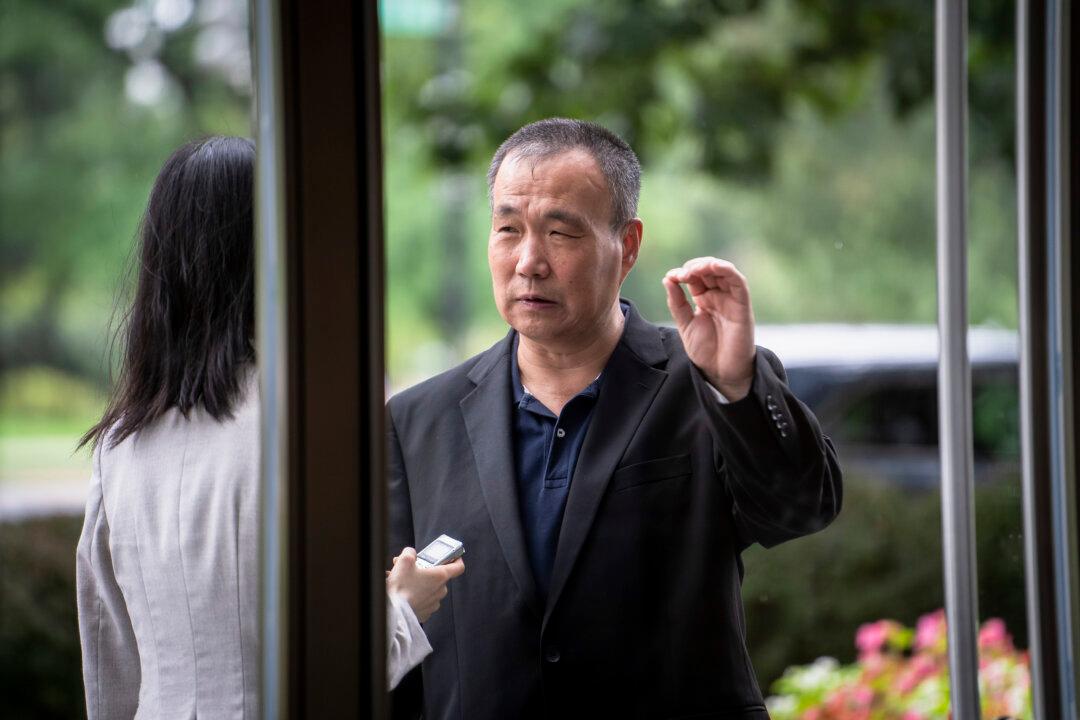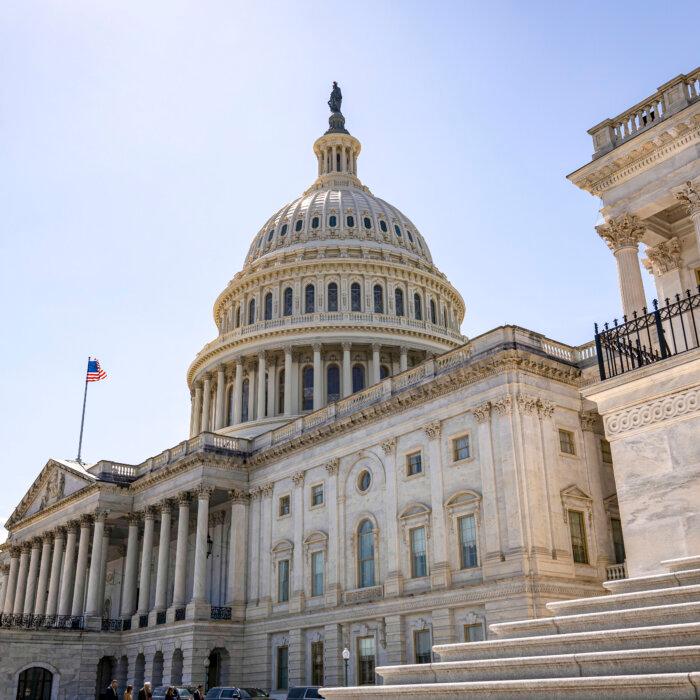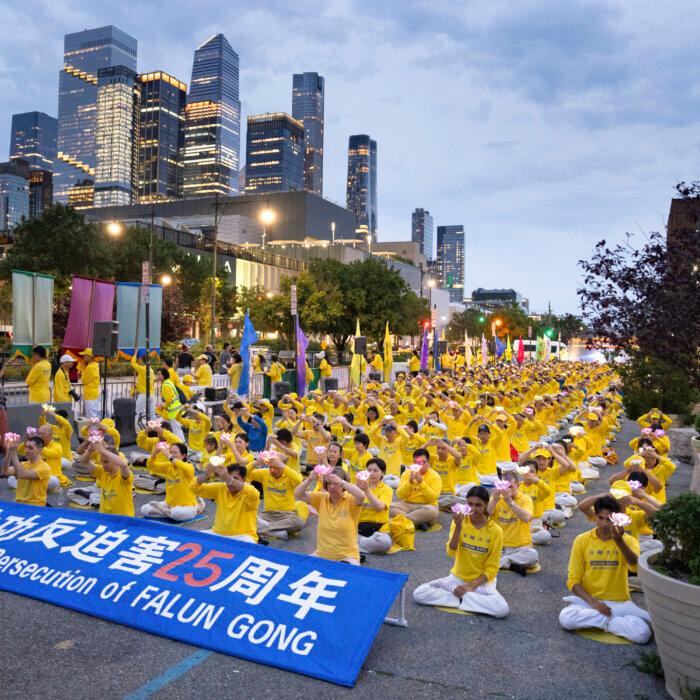WASHINGTON—A man who had part of his liver forcibly removed in communist China has stepped forward after escaping the country to draw attention to the Chinese regime’s mass killing-for-profit scheme known as forced organ harvesting.
At an Aug. 9 press event, Cheng Peiming, a Falun Gong practitioner who turns 59 this month, recalled six prison guards pinning him down in a Chinese hospital to administer anesthesia against his will, while he was being held in a prison in northeastern China over his faith.
That day was Nov. 16, 2004. When he woke up three days later, he said, his right foot was shackled to a hospital bed. One arm was receiving intravenous therapy, and there were tubes on his feet and chest and into his nose.
He began coughing nonstop and felt pain and numbness around his left ribs.
Only after escaping to the United States in 2020 and undergoing a series of medical tests did he confirm his worst fears: Part of his liver was gone, along with a portion of his lung.
During his speech on Aug. 9, Cheng took off his shirt to reveal a scar, about 14 inches long, around the left side of his chest.
To this day, his left arm and ribs ache on a rainy day or when he’s tired, he said.
At the event, the organizers shared three assessments from medical transplant doctors who said the absence of organ tissues in Cheng’s body could only have been the result of forced organ removal.
Cheng, who remained expressionless for most of the event, at one point squeezed his eyes shut as tears fell.
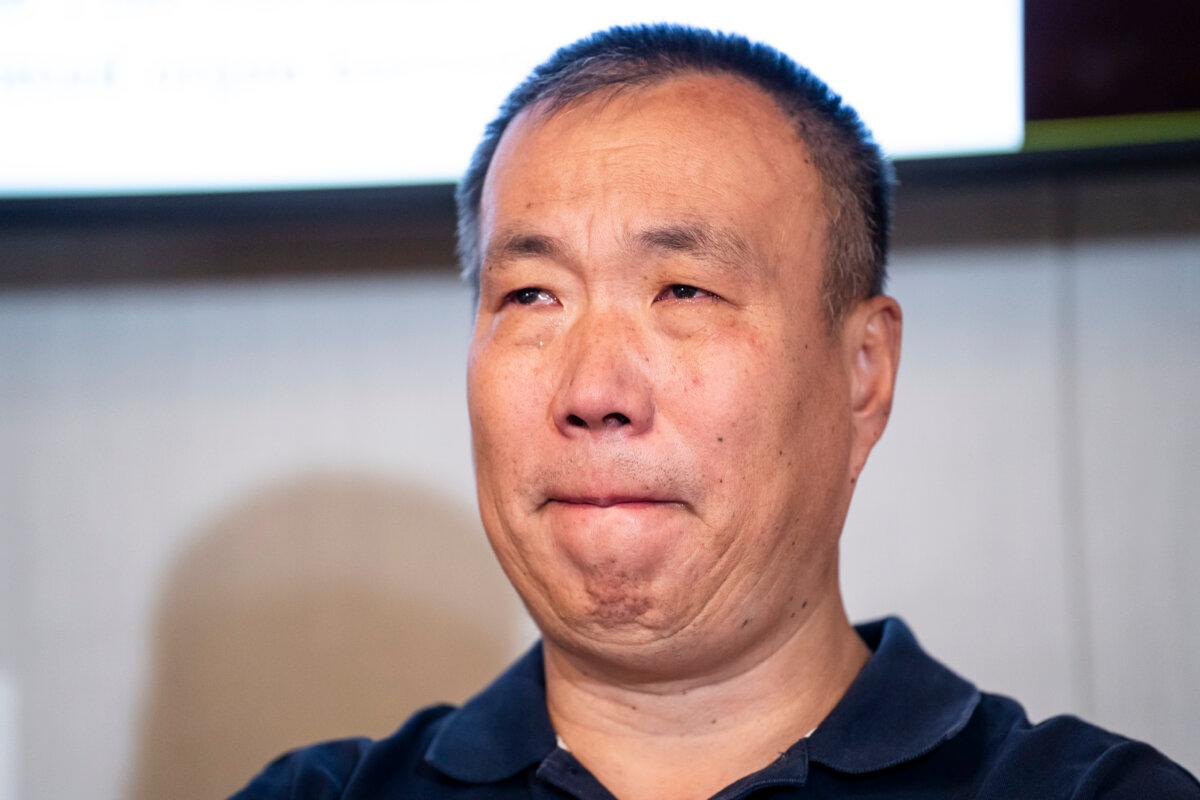
“I’m just incredibly lucky to have survived,” he told The Epoch Times.
There’s a deeper significance to this beyond his personal survival: He’s living proof of a wider pattern of state-sanctioned persecution and abuse.
“Most of the time, people are dead, they can’t talk,” Robert Destro, a former assistant secretary of state for democracy, human rights, and labor who facilitated Cheng’s rescue, told The Epoch Times.
Evidence of the systematic abuse first emerged two years after Cheng’s forced surgery, in 2006, when whistleblowers approached The Epoch Times with accounts of detained Falun Gong practitioners being killed for their organs in secretive Chinese facilities.
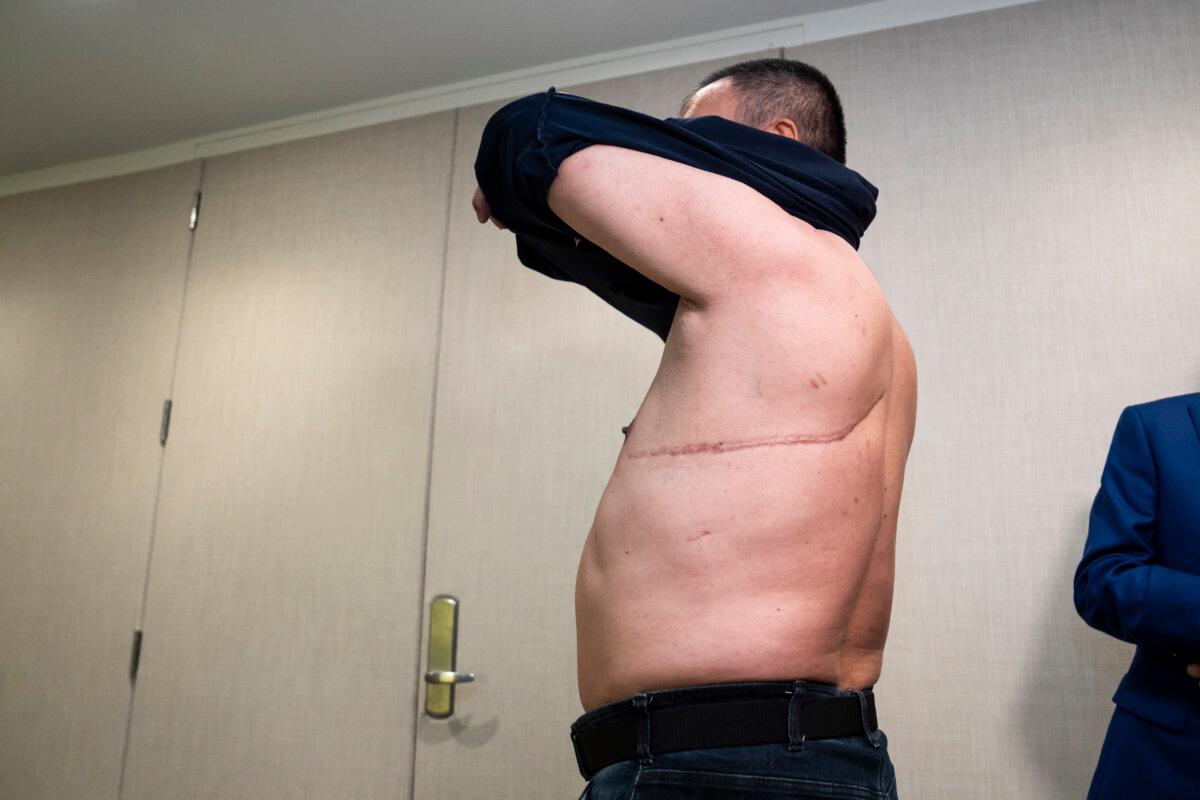
It’s unclear why Cheng’s abusers only partially removed his organs and allowed him to survive in 2004.
Wendy Rogers, advisory board chair of the International Coalition to End Transplant Abuse in China, noted that such liver tissue could have been given to a child patient, while David Matas, a human rights lawyer who has done extensive investigative research on the subject, suggests the hospital could have been experimenting or training doctors in the craft—the initial step of a hospital “getting into the business,” which yields massive profits, he told The Epoch Times.
The location of the incision is also unusual: Instead of an abdominal cut typical in an organ transplant surgery, the doctors opted to make a cut between his ribs. The organizers of the press event noted that such a move, while uncommon, allowed wider access to organs in both the chest and abdomen. The lack of clarity around Cheng’s procedure speaks to the brutality of the regime, and the need for an open and transparent investigation, they said.
“Ultimately, the onus does not fall on Cheng to say what happened to him,“ Matas said at the event. ”The onus falls on the government of China.”
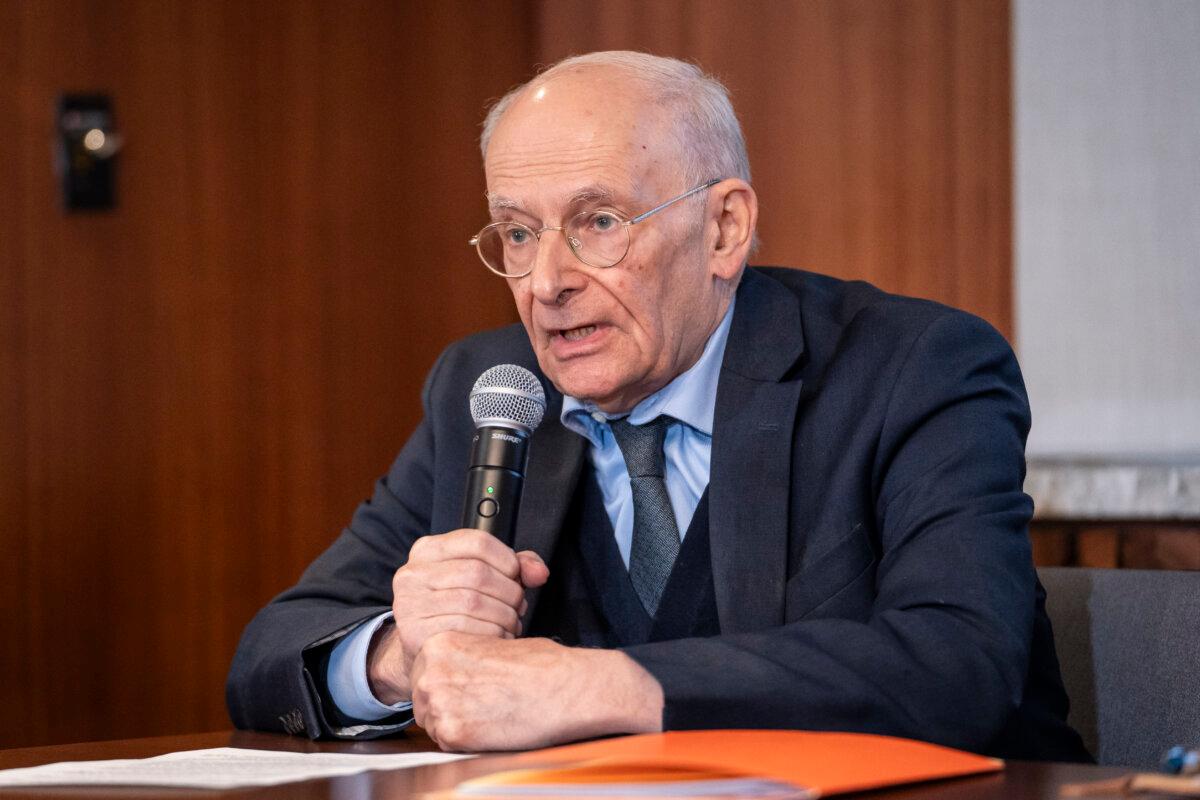
Cheng, who was sentenced to an eight-year term because of his faith, was held at the Daqing Prison in Harbin, capital of Heilongjiang Province, at the time of the nonconsensual surgery.
Over the next two years, while still detained, he suffered from shortness of breath. In February 2006, he began a hunger strike in protest of a new round of torture inflicted upon him, according to reports on Minghui.org, a website dedicated to tracking firsthand accounts of the persecution. The prison administered intravenous drips and took him to Daqing Longnan Hospital on March 2, 2006, shackling him to a bedpost.
Weak and under constant watch by prison guards, Cheng heard the guards speaking to his sister, who had come to see him, he recounted to The Epoch Times. The guards claimed, falsely, that Cheng had ingested a knife blade and required a high-risk surgery. Later, a white-clad doctor came and pressed on his chest and abdomen, declaring they’d perform surgery on him the next day.
Cheng thought that would be the end of him. But an opportunity presented itself when, in the early hours of the morning, the two exhausted guards monitoring him fell asleep before putting shackles on him. He was then able to flee through a fire escape.
That was only days before Cheng read about the forced organ harvesting issue on Minghui.org. He “trembled all over” at the thought of what could have happened to him, he told The Epoch Times. He dared not take off his clothes to sleep for the next two months, just in case he had to flee.
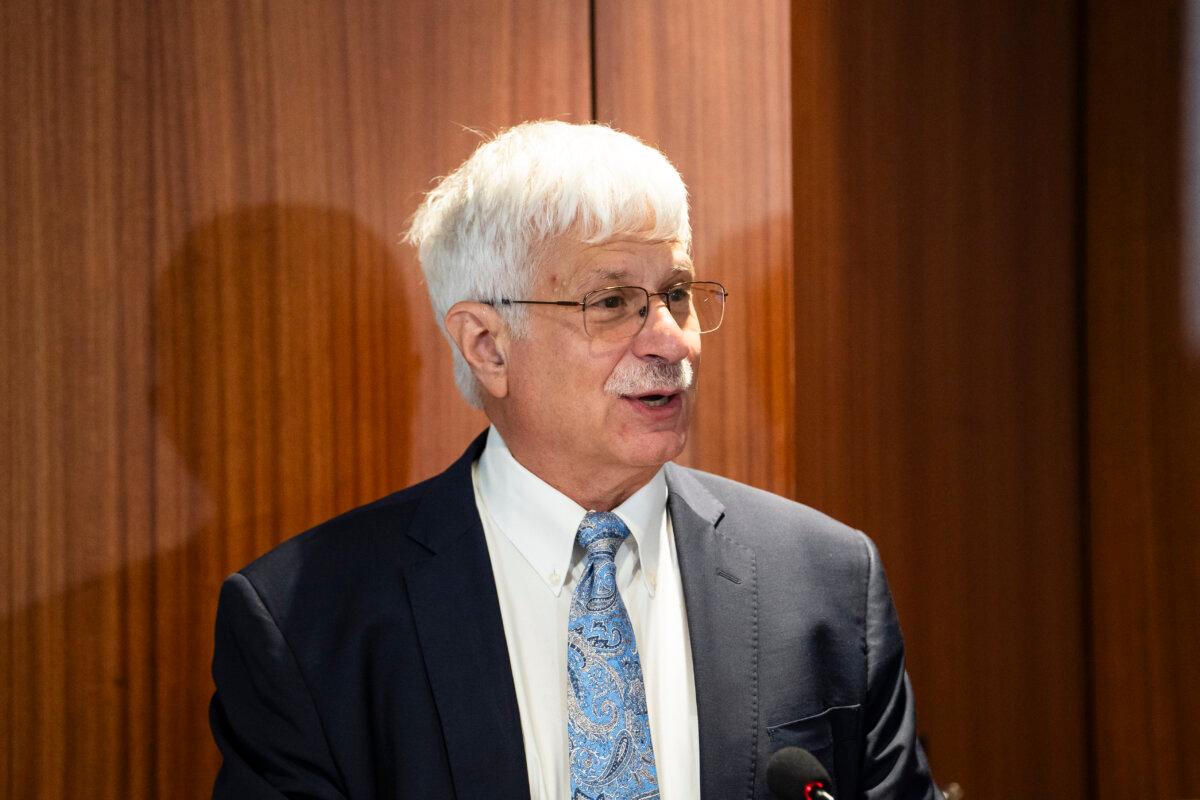
Chinese police put out a bounty of 50,000 yuan, about $6,500 at the time, to hunt Cheng down. He lived in hiding until eventually escaping to Thailand in 2015.
Multiple human rights advocates also shared statements of support for Cheng.
Katrina Lantos Swett, president of the Lantos Foundation for Human Rights and Justice, commended Cheng’s courage to speak out. She said her organization had spoken to Cheng previously and that she found his account “deeply disturbing.”
It offers “further evidence of the egregious human rights abuse happening in China in the form of forced organ harvesting,” she said. “This outrageous violation of fundamental rights continues despite the Chinese government’s claims to the contrary.”
Eric Patterson, the head of the Victims of Communism Memorial Foundation, similarly said the case highlights the “urgent need to address medical atrocities carried out by the Chinese Communist Party.”
At the event, Cheng said he wasn’t speaking just for himself, but for the many who are still at risk in China.
He said that while detained, he and several fellow Falun Gong practitioners made each other a promise: Whoever among them made it out alive would tell the world what had happened there.
